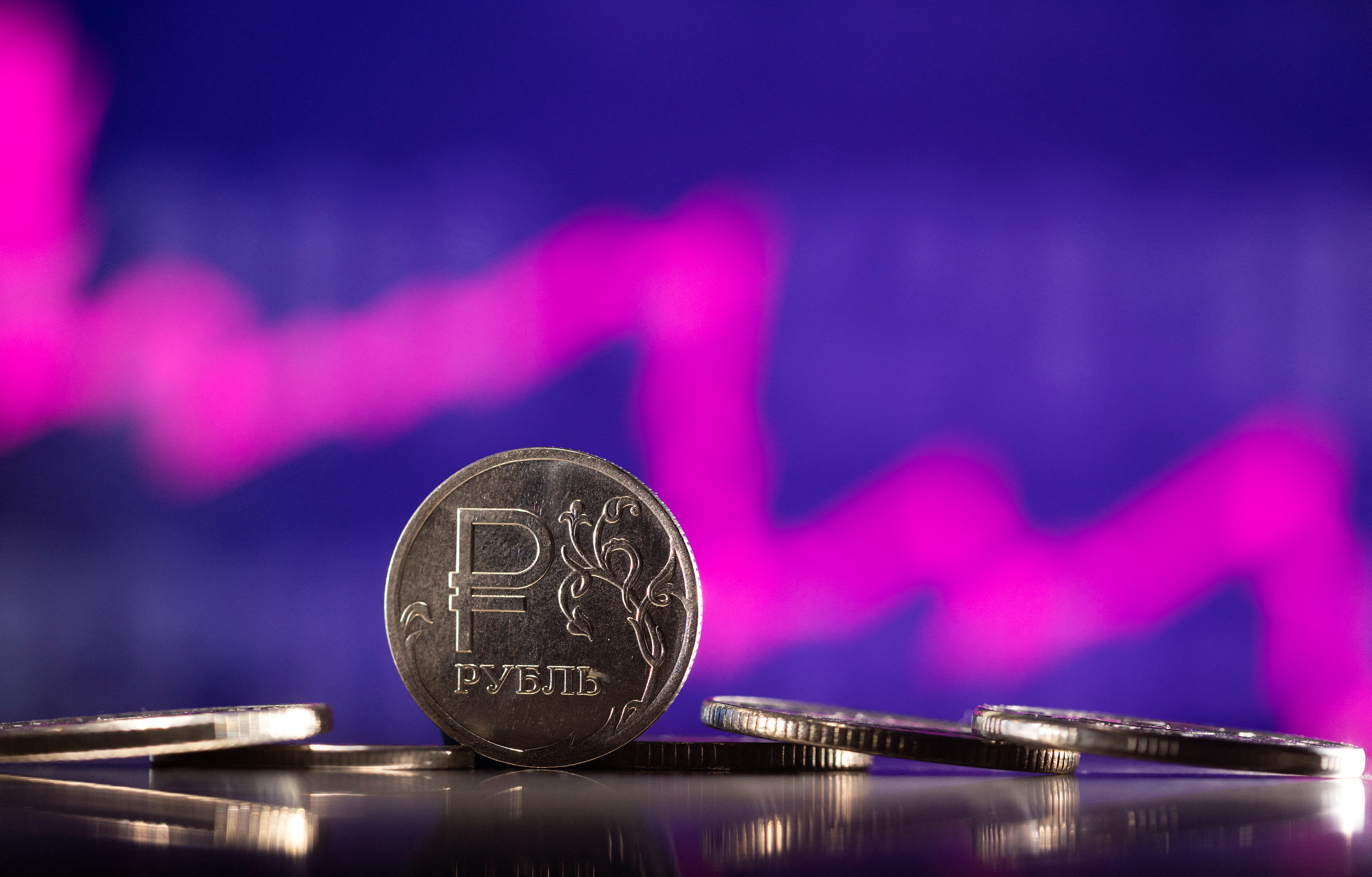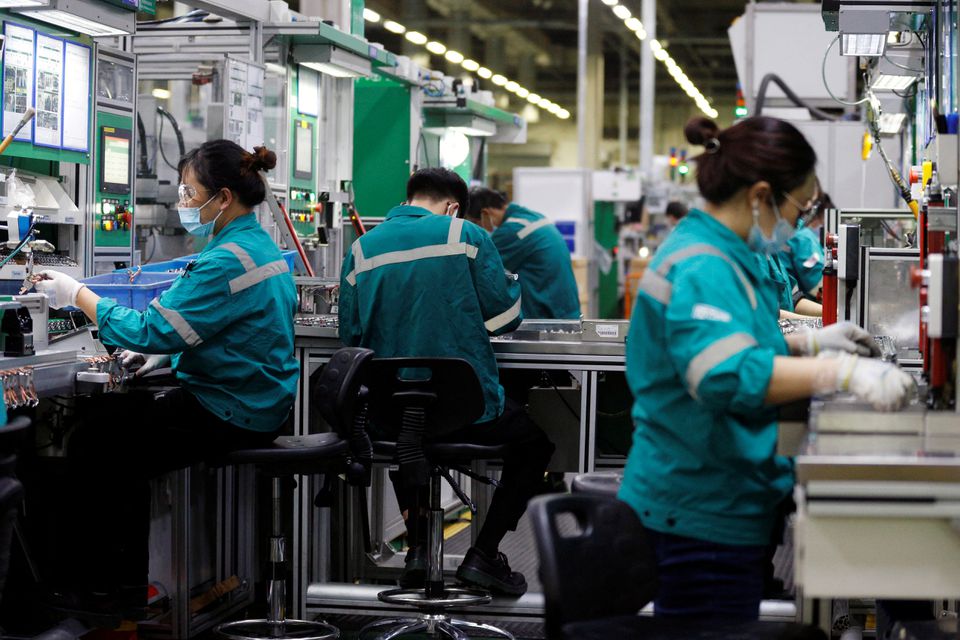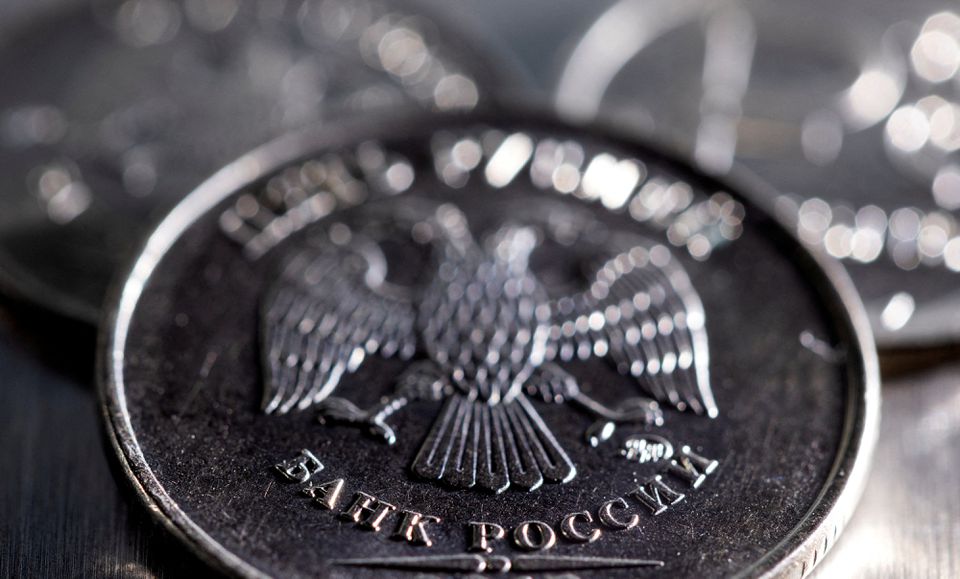WORLDWIDE: HEADLINES
Russia Hikes Rate To 20% In Emergency Move, Tells Companies To Sell FX

The Russian central bank raised its key interest rate to 20% from 9.5% on Monday in an emergency move, and authorities told export-focused companies to be ready to sell foreign currency as the rouble tumbled to record lows.
The rouble hit a low of 120 to the dollar on electronic currency trading platform EBS after President Vladimir Putin ordered his military command to put nuclear-armed forces on high alert on Sunday, while the West imposed harsh sanctions against Russia.
The central bank, which says it targets inflation at 4% and will do all necessary to ensure financial stability, said the rate increase will bring deposit rates to levels “needed to compensate for the increased depreciation and inflation risks”.
“This is needed to support financial and price stability and protect citizens’ savings from depreciation,” it said.
The rate hike to levels above the 17% seen in 2014 when Russian annexed Crimea from Ukraine comes after Western countries moved to block certain Russian banks’ access to the SWIFT international payment system to punish Moscow for its invasion of Ukraine.
Russia calls its actions in Ukraine a “special operation” that it says is not designed to occupy territory but to destroy its southern neighbour’s military capabilities and capture what it regards as dangerous nationalists.
“External conditions for the Russian economy have drastically changed,” the central bank said in a statement.
Central Bank Governor Elvira Nabiullina will hold a briefing at 1300 GMT, the bank said.
Full coverage: REUTERS
China’s Feb Factory Activity Likely Shrank Amid Holidays, Olympics

China’s factory activity likely contracted in February on slower production after the Lunar New Year holiday and Winter Olympics, with Beijing expected to unveil more stimulus measures at a parliamentary meeting later this week to support the economy.
The official manufacturing Purchasing Manager’s Index (PMI) is expected to ease to 49.9 in February, its lowest reading in four months, from 50.1 in January, according to the median forecast of 35 economists polled by Reuters on Monday. A reading below the 50-point mark indicates a contraction from the previous month.
“Apart from seasonality impact from Lunar New Year timing shifts, production curbs during the Winter Olympics and still-subdued property sector activity likely weighed on upstream demand,” analysts at Morgan Stanley said in a note on Friday. They expect National Bureau of Statistics manufacturing PMI to have slipped to 49.6.
The week-long Lunar New Year holidays began at the end of January and the Beijing Winter Olympics took place from Feb. 4-20.
However, Capital Economics expects some upside surprise to the data, citing loosened COVID-19 restrictions as outbreaks were contained.
“Early indicators suggest that conditions improved in February. Most localised restrictions on industrial areas and port cities were lifted thanks to fewer outbreaks this month compared to January.”
China’s economy started last year on a strong footing, rebounding from a pandemic-induced slump the previous year. Momentum started to flag in the summer, however, weighed down by debt problems in the property market and strict anti-virus measures that hit consumer confidence and spending.
Full coverage: REUTERS
WORLDWIDE: FINANCE/BUSINESS
Crude Jumps, Stocks Slip, Rouble Crashes To Record Low On Tough Russian Sanctions

Crude oil jumped while the rouble plunged nearly 30% to a record low on Monday after Western nations imposed tough new sanctions on Russia for its invasion of Ukraine, including blocking some banks from the SWIFT global payments system.
Safe-haven demand boosted bonds along with the dollar and yen while the euro sank after Russian President Vladimir Putin put nuclear-armed forces on high alert on Sunday, the fourth day of the biggest assault on a European state since World War Two.
The ramp-up in tensions heightened fears that oil supplies from the world’s second-largest producer could be disrupted, sending Brent crude futures up $4.21 or 4.3% to $102.14. U.S. West Texas Intermediate (WTI) crude futures were up $4.58 or 5.0% at $96.17 a barrel.
“I am telling clients all we know for certain is that energy prices are going to be higher, and there are going to be some beneficiaries,” said John Milroy, Ord Minnett financial advisor in Sydney.
“It’s an old cliché, but it’s true that uncertainty drives moves in both directions.”
Asia-Pacific shares turned lower after spending the morning session mostly in the green, putting them in line with declines for U.S. and European stock futures.
Japan’s Nikkei 225 (.N225) fell 0.25%, while Chinese blue chips (.CSI300) slipped 0.36%. Australia’s benchmark (.AXJO), though, added 0.64%, boosted by energy shares.
MSCI’s index of regional stocks (.MIAP00000PUS) lost 0.58%.
U.S. emini stock futures were pointing to a 2.35% drop at the restart, while pan-European EURO STOXX 50 futures slid 3.90%. FTSE futures declined 1.21%.
“We had a deluge of very negative information over the weekend,” said Kyle Rodda, a market analyst at IG Australia. “We’re talking about financial stability risks, and sprinkle over that the threat of nuclear war.”
“Volatility is heightened,” he said. “Price action is incredibly choppy.”
The 10-year U.S. Treasury yield fell about 9 basis points to 1.89%, and equivalent Australian yields retreated about 6 basis points to 2.177%.
The euro slid 1.1% to $1.11465 and 1.1% to 128.785 yen , while the risk-sensitive Australian and New Zealand dollars sank 0.78% and 0.88%, respectively.
The rouble dived as much as 29.67% to a record-low 119.5 per dollar.
Gold rose more than 1% to around $1,909 on demand for the safest assets.
“This volatility will go on for a while yet, until the dust settles,” said Shane Oliver, chief economist at AMP Capital.
In the meantime, “markets are going to be swinging from headline to headline,” he said.
Full coverage: REUTERS


 Home
Home